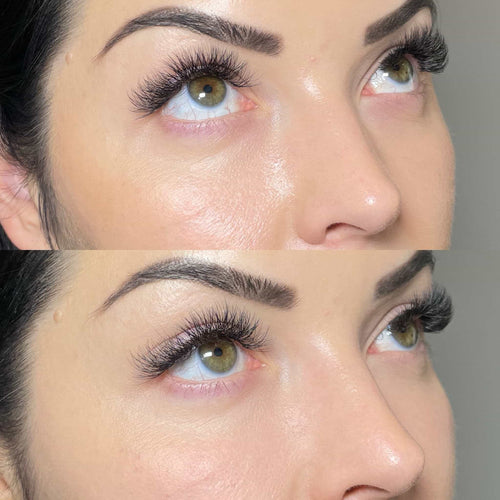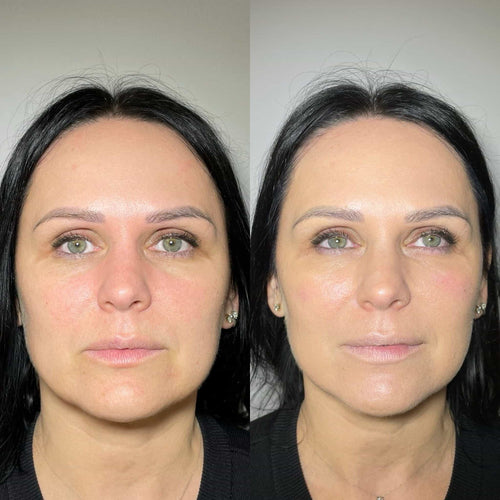Arrange Your Dermal Filler Consultation with Dr. Laura Geige at It’s Me and You Clinic
Medical Considerations
Pre-existing Conditions
When considering dermal fillers, it’s crucial to understand the potential risks and who might be better suited avoiding them.
Certain medical conditions and pre-existing health factors can increase the likelihood of complications or make filler treatment less safe.
Here are some important medical considerations:
- Active Infections:** Avoid fillers if you have any active skin infections, such as acne or cellulitis. The injection site could become further infected.
- Autoimmune Diseases:**Individuals with autoimmune disorders, like lupus or rheumatoid arthritis, may experience increased inflammation and risk of complications from filler injections.
- Blood Clotting Disorders:**If you have a bleeding disorder or are taking blood thinners, fillers can increase the risk of bruising, swelling, and even hematomas (blood clots) at the injection site.
- Pregnancy and Breastfeeding:The safety of fillers during pregnancy and breastfeeding hasn’t been definitively established. It’s generally recommended to avoid them in these situations.
Other pre-existing conditions that warrant careful consideration include:
Schedule a Dermal Filler Consultation with Dr. Laura Geige Now
* **Diabetes:** Individuals with diabetes may have impaired wound healing, potentially leading to complications.
Book a Dermal Filler Session with Dr. Laura Geige at It’s Me and You Clinic
* **Keloid scarring:** Fillers could trigger excessive scar tissue formation in those prone to keloids.
* **Skin allergies or sensitivities:** Allergies to the filler components are possible and should be evaluated.
It’s crucial to have an open and honest conversation with a qualified medical professional before undergoing any filler treatment.
They can assess your individual health history, medications, and concerns to determine if fillers are safe for you and discuss potential risks and benefits.

Pregnancy and Breastfeeding
Medical considerations play a crucial role in determining who should avoid dermal fillers.
Here are some medical conditions and situations where filler injections might be contraindicated:
- Active Infections or Skin Conditions: Fillers should not be injected into areas with active infections, such as acne, cellulitis, or herpes outbreaks. Inflammation can spread the infection or hinder healing.
- Autoimmune Diseases: Individuals with autoimmune disorders, such as lupus or rheumatoid arthritis, may experience an increased risk of adverse reactions to fillers.
- Blood Clotting Disorders: Fillers carry a risk of bleeding and bruising. People with blood clotting disorders, like hemophilia or Von Willebrand disease, should consult their doctor before considering fillers.
- Pregnancy and Breastfeeding: The safety of dermal fillers during pregnancy and breastfeeding is not fully established. It’s generally recommended to avoid them until after these stages due to the potential for unknown risks to both mother and child.

It’s important to note that this is not an exhaustive list, and individual cases may vary. A thorough consultation with a qualified dermatologist or plastic surgeon is essential to assess suitability for filler treatment based on your specific medical history.
Allergies and Medications
Sensitivity to Fillers
Allergies can play a significant role in determining who is a suitable candidate for dermal filler treatments. Individuals with a history of allergic reactions, particularly to hyaluronic acid (a common filler ingredient) or lidocaine (used as a local anesthetic in some fillers), should exercise extreme caution.
A severe allergic reaction to a filler can be life-threatening and requires immediate medical attention. It’s crucial for potential patients to disclose their complete medical history, including any known allergies, to their chosen practitioner.
Sensitivity or allergy to fillers doesn’t always manifest as an immediate, dramatic reaction. Sometimes, it can present as delayed reactions like redness, swelling, itching, or bumps that develop days or even weeks after treatment. These milder reactions can be managed with topical medications or antihistamines, but they indicate a potential for more serious complications in the future.
People with a history of keloid scarring or hypertrophic scarring should also be cautious about fillers as they are at increased risk of developing excessive scar tissue after injection.
Furthermore, individuals currently undergoing certain medical treatments, such as chemotherapy or immunosuppressant therapy, may have weakened immune systems that make them more susceptible to infections and complications from filler injections.
It’s essential for anyone considering dermal fillers to consult with a qualified and experienced practitioner who can assess their individual health history and risks. Open communication about allergies and any concerns is vital for ensuring safe and successful treatment outcomes.
Interacting Medications
Allergies and medications can significantly influence the safety and effectiveness of dermal filler treatments.
Individuals with active allergies, particularly to lidocaine (a common anesthetic used in fillers) or hyaluronic acid (the primary ingredient in many fillers), should avoid dermal fillers. An allergic reaction could range from mild itching and redness to severe anaphylaxis, a life-threatening condition.
Certain medications can also interact with dermal fillers, potentially increasing the risk of complications. Blood thinners, such as aspirin, warfarin, and clopidogrel, can increase bleeding at the injection sites.
Antibiotics, particularly tetracyclines, can weaken collagen production, making the filler less effective and potentially leading to irregularities in the treated area.
Immune-suppressing medications like corticosteroids can also affect how the body responds to fillers, potentially reducing their longevity and increasing the risk of infection.
It’s crucial for anyone considering dermal fillers to discuss their full medical history and current medication list with a qualified dermatologist or plastic surgeon. This open communication allows for a thorough assessment of potential risks and benefits, ensuring a safe and successful treatment experience.
Individual Factors
Skin Health
Individual factors play a significant role in determining whether someone is a suitable candidate for dermal filler injections.
Here are some key individual factors to consider:
- Medical History:
- Skin Type and Condition:
- Medications and Supplements:
- Allergies:
- Pregnancy and Breastfeeding:
- Sun Exposure and Sun Sensitivity:
- Realistic Expectations:**
Individuals with certain medical conditions, such as uncontrolled diabetes, autoimmune diseases, or bleeding disorders, may be at increased risk of complications from fillers. It’s crucial for potential patients to disclose their complete medical history to the injector.
Individuals with sensitive skin, acne-prone skin, or active skin infections may experience adverse reactions to fillers.
Mature skin with significant collagen loss might benefit from fillers, but it’s important to manage expectations as results may vary.
Certain medications, such as blood thinners and retinoids, can increase the risk of bruising or bleeding after filler injections.
It’s essential to inform the injector about all medications and supplements being taken.
Individuals with a history of allergies, particularly to local anesthetics or hyaluronic acid (a common filler ingredient), should be cautious about getting fillers.
Fillers are generally not recommended for pregnant or breastfeeding women due to the potential for unknown effects on the fetus or infant.
Excessive sun exposure can weaken the skin and increase the risk of complications from fillers.
Individuals with a history of sun damage may need additional precautions or alternative treatments.
It’s crucial for potential patients to have realistic expectations about the results of fillers. Fillers can enhance facial features and reduce wrinkles, but they cannot completely eliminate aging.
Consulting with a qualified and experienced injector is essential to determine individual suitability for dermal fillers. A thorough assessment will take into account all relevant factors to ensure safe and effective treatment.
Expectations and Goals
Understanding individual factors, expectations, and goals is crucial when determining who might not be suitable candidates for filler injections.
**Individual Factors:**
- Medical History: Individuals with certain medical conditions, such as active infections, bleeding disorders, or autoimmune diseases, should avoid fillers. Pregnant or breastfeeding women may also need to reconsider.
- Skin Type and Conditions: People with sensitive skin, allergies to local anesthetics, or skin conditions like eczema or psoriasis might experience adverse reactions to fillers.
- Medications:** Certain medications, including blood thinners and retinoids, can increase the risk of complications from filler injections.
Expectations and Goals:
- Realistic Expectations: Fillers are not a miracle solution and have limitations. Individuals need to understand what fillers can realistically achieve and manage their expectations accordingly.
- Underlying Emotional Issues: Seeking fillers solely to address deep-seated insecurities or body dysmorphic disorder may not be appropriate. Addressing these issues through therapy could be more beneficial.
- Desired Outcome:** Clear communication with a qualified practitioner is essential to ensure the desired outcome aligns with what fillers can realistically deliver.
James Martin Live Made by Penny Decléor Direct Mocha Kid Magazine Audrey’s JL
- Who Shouldn’t Get Lip Fillers? - November 8, 2025
- What Is Sexual Liberation And How Does It Challenge Conventional Relationships? - November 6, 2025
- Weed Infused Beverages That Won’t Break The Bank - November 3, 2025

